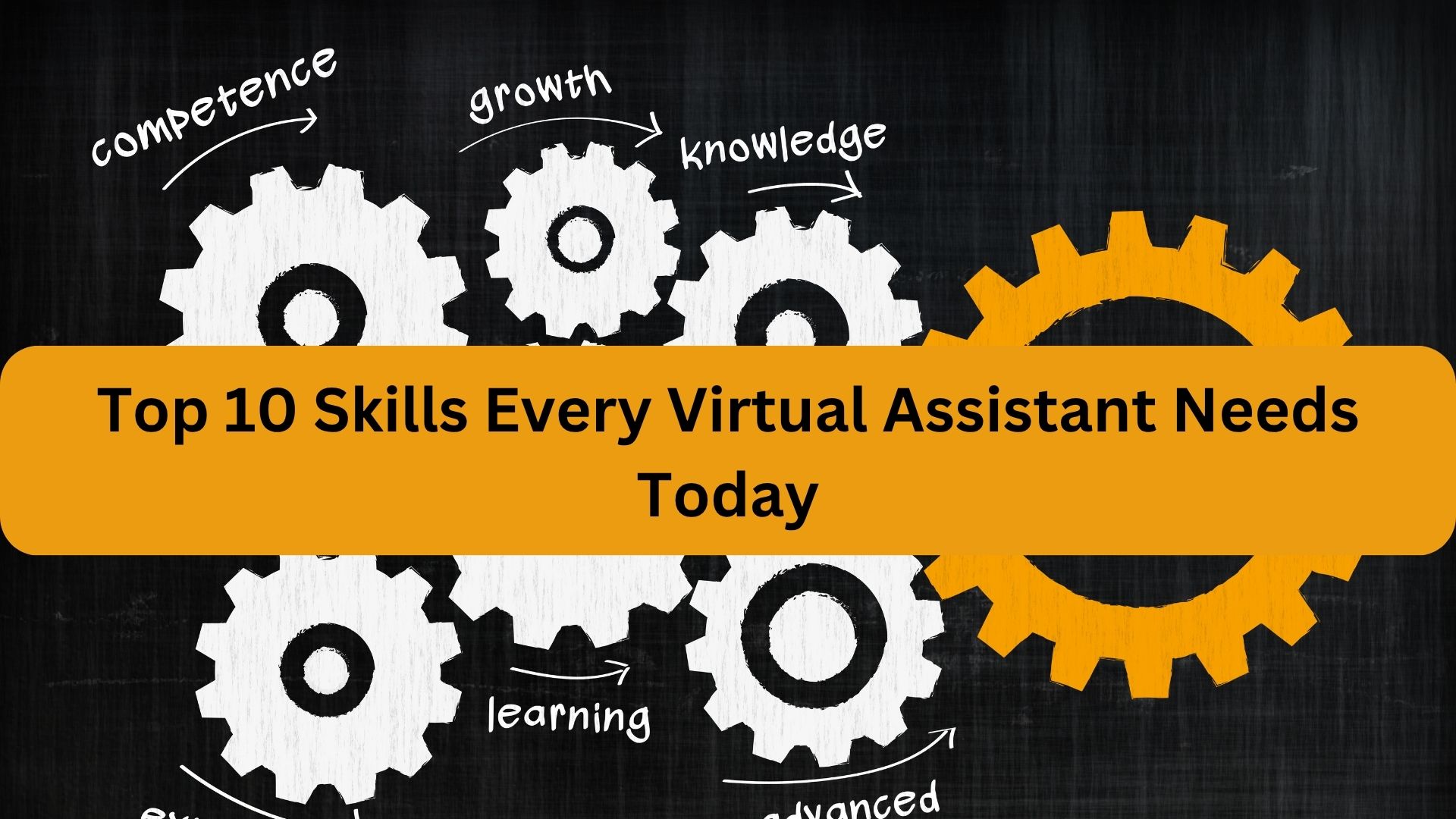
In today’s fast-paced, remote-first business environment, virtual assistants (VAs) have become indispensable. But as the VA landscape evolves, so do client expectations. In 2025, it’s not enough to just manage calendars and reply to emails. VAs are now seen as tech-savvy, strategic partners who help drive business success.
Whether you’re a beginner looking to enter the industry or an experienced VA aiming to level up, mastering these 10 essential skills will set you apart from the crowd. This guide breaks down what each skill means, why it matters, and how to develop it.
1. Communication
Clear, professional communication—both written and verbal—is the cornerstone of effective virtual work. VAs often act as a bridge between a business owner and their clients or team.
| Why It Matters | How to Improve |
|---|---|
| Ensures clarity in tasks and reduces misunderstandings | Take courses on business writing and active listening; use Grammarly Business or Hemingway App for editing |
Bonus Tip: Learn to tailor your tone based on the client’s brand and audience. Use tools like ChatGPT to draft or polish emails.
2. Time Management
Virtual assistants juggle multiple clients, platforms, and deadlines. Being efficient and dependable is non-negotiable.
| Why It Matters | How to Improve |
| Missed deadlines can cost you clients and referrals | Use tools like Trello, ClickUp, or Motion for task scheduling; track your time with Toggl or RescueTime |
Bonus Tip: Group similar tasks together (batch working) to minimize context switching.
3. Tech Proficiency
A great VA knows their way around today’s most-used digital tools. In 2025, clients expect you to be comfortable with AI, automation platforms, and project management systems.
| Tools to Know | Skills to Develop |
| Notion, Slack, Zoom, Canva, Google Workspace, ChatGPT, Jasper, Zapier | Basic troubleshooting, software navigation, learning new tools quickly |
Bonus Tip: Stay updated through free resources like YouTube tutorials, AI newsletters, or Skillshare courses.
4. Initiative
Clients love VAs who don’t just wait for instructions but anticipate what’s needed next. Initiative shows you’re not just a task-doer—you’re a problem solver.
| Why It Matters | How to Demonstrate It |
| Saves clients time and improves your value | Suggest tools or processes that improve workflows; proactively check in on project progress |
5. Attention to Detail
From proofreading emails to formatting documents, small errors can create big problems. Precision is one of the most underrated VA superpowers.
| Why It Matters | How to Improve |
| Mistakes damage credibility and client trust | Use checklists, double-check work, and automate recurring processes to reduce errors |
6. Adaptability
Industries change. Tech updates. Clients pivot. Your ability to roll with it determines your success.
| Why It Matters | How to Get Comfortable With Change |
| Keeps you relevant and in demand | Take on a variety of clients or projects; practice learning new tools regularly |
Bonus Tip: Follow trends in digital marketing, AI, and remote work to stay ahead.
7. Confidentiality and Ethics
Clients trust VAs with sensitive information: passwords, finances, customer data. Professionalism isn’t optional.
| Why It Matters | Best Practices |
| Breaches can lead to legal or reputational damage | Use secure password managers like LastPass, sign NDAs, and maintain strong data privacy habits |
8. Client Service
Customer service isn’t just for frontliners—it’s essential for every VA. How you interact with your client, respond to feedback, and handle challenges defines your reputation.
| Why It Matters | How to Improve |
| Builds long-term client relationships and referrals | Be responsive, listen actively, resolve issues calmly, and follow up regularly |
Bonus Tip: Use tools like Loom for quick updates and personalized check-ins.
9. Task Prioritization
With multiple to-dos from multiple clients, knowing what to tackle first is a game-changer. Prioritization avoids overwhelm and missed deadlines.
| Why It Matters | How to Master It |
| Keeps your workflow focused and productive | Use Eisenhower Matrix, color-coded boards in ClickUp, or priority tags in Trello |
10. AI Collaboration
In 2025, AI isn’t replacing VAs—it’s empowering them. Knowing how to work with AI makes you faster, smarter, and more efficient.
| Tools to Explore | AI Use Cases for VAs |
| ChatGPT, Jasper, Notion AI, Canva AI, Otter.ai | Drafting content, transcribing meetings, generating social captions, summarizing tasks |
Prompt Ideas:
- “Write a thank-you email to a client who renewed their contract.”
- “Summarize this transcript and list action items.”
- “Generate five blog titles based on this topic.”
Final Thoughts
Being a successful virtual assistant in 2025 is about more than checking boxes—it’s about being proactive, tech-fluent, and client-centered. These top 10 skills are the foundation of a thriving VA business, and they’re all learnable.
You don’t need to master them all overnight. Start with one or two and build from there. The key is consistency and a commitment to continuous improvement. With these skills in your toolkit, you’re not just ready for the VA world—you’re ready to lead in it.

